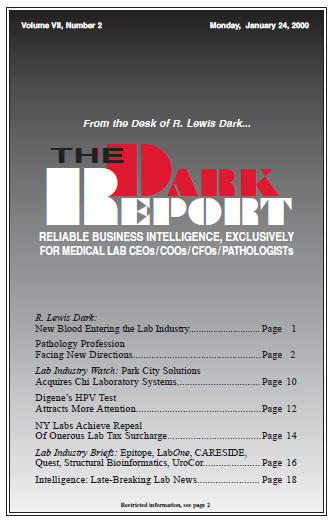CEO SUMMARY: Evidence accumulates that HPV testing may be an effective way to identify women at risk for cervical cancer. Both Laboratory Corporation of America and Quest Diagnostics Incorporated recently added Digene’s Hybrid Capture® II HPV test to their menu. The intent is to offer physicians a follow-up test for patients with Pap smears that …
Digene Corp’s HPV Test Attracts More Attention Read More »
To access this post, you must purchase The Dark Report.


